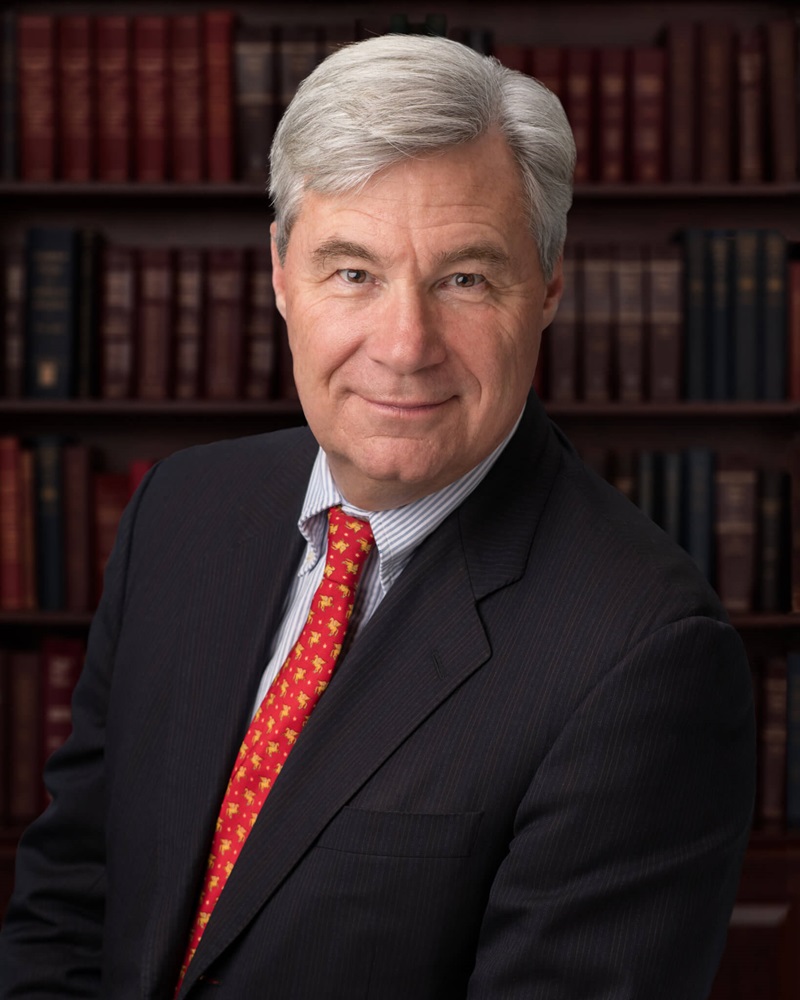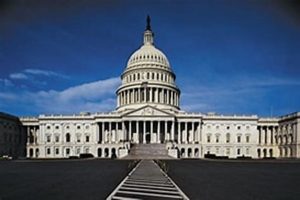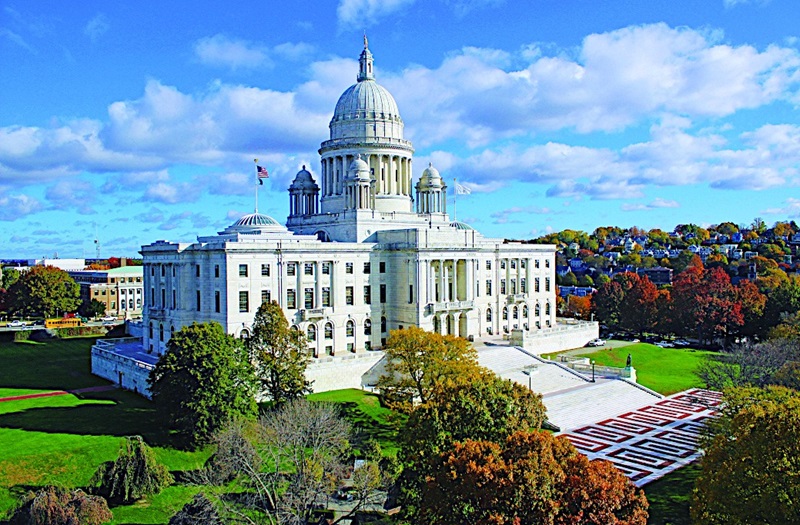Whitehouse Opening Statement at Hearing on Big Oil’s Evolving Efforts to Avoid Accountability for Climate Change

Washington, D.C.— U.S. Senator Sheldon Whitehouse (D-RI), Chairman of the U.S. Senate Budget Committee, delivered the following opening statement at today’s hearing, titled “Denial, Disinformation, and Doublespeak: Big Oil’s Evolving Efforts to Avoid Accountability for Climate Change.”
The hearing follows the release of a joint staff report produced by the Senate Budget Committee and House Committee on Oversight and Accountability Democrats as part of a multi-year investigation—initiated by the House Oversight Committee and now a joint investigation with the Senate Budget Committee—and the unveiling of new documents that expose the fossil fuel industry’s role in spreading climate disinformation and preventing action on climate change.
Chairman Whitehouse’s remarks, as prepared for delivery:
Ranking Member Grassley, members of the committee, witnesses, and guests, welcome.
It has not gone unnoticed that my Republican colleagues disapprove of my work as Budget Committee chairman to warn about the economic and budgetary dangers of disruption to our climate by fossil fuel emissions. The warnings are deadly serious, across multiple vectors of danger. The witnesses were often highly accomplished experts, with fiduciary responsibilities. Yet the response almost without fail was mockery or changing the subject.
Perhaps my friends are right. Perhaps history will show that climate upheaval caused by fossil fuel emissions won’t have any serious economic impact on our economy or our budget. Perhaps history will show that the economic shocks from the mortgage meltdown and from COVID, which produced a third of our national debt, don’t prefigure an even worse economic shock from our failure of stewardship on climate. Perhaps.
But I doubt it. I believe the economic danger is deadly real. You have your views and I have mine, and time will tell. History will judge.
In the meantime, I will try to fend off, as best I can from this chair, the massive economic shocks we’ve been warned of: economic shock from disruptions in agriculture and shipping, whose early signals we already see in grocery store aisles; economic shock from unprecedented storm and wildfire damage, already burdening our emergency funding needs; economic shock from collapsing insurance markets, already stressed in Florida, Louisiana, coastal Texas and California; and global economic shock from the “carbon bubble” bursting on a fossil fuel industry stubbornly oblivious to the dangers.
The obvious way to fend off those economic shocks is to head off the cause of those shocks: fossil fuel emissions. To head off that cause, we have to understand: first, what is protecting enormous fossil fuel subsidies, now pegged at approximately $750 billion per year in America; and second, what is preventing us from adopting policies to prevent the worst dangers.
That’s what this hearing is about. Because what is protecting the massive fossil fuel subsidies and what is preventing policies to reduce the danger is the same thing: the fossil fuel industry itself. And when I say itself, I include its apparatus of political influence, its armada of front groups spreading disinformation, and its rivers of political dark money made possible by the Citizens United decision.
This hearing looks at what the industry’s own documents reveal. That is why Ranking Member Raskin is here today. Two-and-half years ago, the House Oversight Committee subpoenaed documents from four oil companies and two fossil fuel trade associations about their response to climate change. After much obstruction, the six entities produced more than two million pages of documents. During the 117th Congress, the Oversight Committee held three hearings and released two public memoranda setting out its initial findings.
But more than a million pages of those documents were not reviewed. This hearing is drawn from those unreviewed documents.
Yesterday, Ranking Member Raskin made public approximately 4,500 new documents of interest from this latest review, exposing new details about the fossil fuel industry’s decades-long campaign of denial and deception.
The collective record shows the fossil fuel industry going through four phases. Phase One was its own scientists warning, very clearly and accurately, about the climate dangers from unchecked fossil fuel emissions. Fossil fuel industry scientists began ringing climate alarm bells nearly 65 years ago.
In one example, the American Petroleum Institute had physicist Edward Teller—of Oppenheimer fame— report that continued fossil fuel combustion could raise sea levels dozens of feet. The year was 1959. In another, an Exxon senior scientist in 1977 reported to the management committee “general scientific agreement” that burning fossil fuels was the changing Earth’s climate. There were many such warnings.
Phase Two was the industry looking at what those warnings meant for profits, and setting up an elaborate covert operation to undermine the very science its own scientists had revealed, and to bring industry influence to bear in politics to prevent any remedies. It set up an armada of front groups.
Yesterday, Ranking Member Raskin made public approximately 4,500 new documents of interest from this latest review, exposing new details about the fossil fuel industry’s decades-long campaign of denial and deception.
The collective record shows the fossil fuel industry going through four phases. Phase One was its own scientists warning, very clearly and accurately, about the climate dangers from unchecked fossil fuel emissions. Fossil fuel industry scientists began ringing climate alarm bells nearly 65 years ago.
In one example, the American Petroleum Institute had physicist Edward Teller—of Oppenheimer fame— report that continued fossil fuel combustion could raise sea levels dozens of feet. The year was 1959. In another, an Exxon senior scientist in 1977 reported to the management committee “general scientific agreement” that burning fossil fuels was the changing Earth’s climate. There were many such warnings.

Phase Two was the industry looking at what those warnings meant for profits, and setting up an elaborate covert operation to undermine the very science its own scientists had revealed, and to bring industry influence to bear in politics to prevent any remedies. It set up an armada of front groups.
Phase Three was the “hoax” phase — using that elaborate covert operation to spread lies, that climate change was a hoax, that the science wasn’t settled, and that remedies would do more harm than good. In its now-infamous 1998 “Victory Memo,” API wrote that “Victory will be achieved when average citizens ‘understand’ (recognize) uncertainties in climate science,” with the stated goal that “‘climate change’ becomes a non-issue.” The Victory Memo laid out a massive campaign to spend millions of dollars, but climate change would not become a non-issue; it began to wreak visible havoc around the world, the hoax strategy collapsed, and Big Oil evolved from denial to duplicity.
This hearing documents Phase Four: the industry pivoting to pretending it is taking climate change seriously — while secretly undermining its own publicly-stated goals. Phase Four is nominally expressing alignment with the Paris Agreement climate goals, while internally making them unachievable. Phase Four is stating emissions reduction targets too far out to matter, and internally not taking the steps necessary to meet them. Phase Four is advertising your interest in climate safety technologies, but refusing to put the investments behind them to make them real. Phase Four, put simply, is Climate Denial Lite, a green-leaning cover for the industry’s continued covert operation — through dark money, phony front groups, false economics, and relentless exertion of political influence — to block meaningful climate safety progress.

Our investigation uncovered public pledges undermined by private memos, public support for climate policies contradicted by private emails, rampant evidence of deception, and corporate doublespeak. Here’s how it went. Play the tape.
This hearing documents Phase Four: the industry pivoting to pretending it is taking climate change seriously — while secretly undermining its own publicly-stated goals. Phase Four is nominally expressing alignment with the Paris Agreement climate goals, while internally making them unachievable. Phase Four is stating emissions reduction targets too far out to matter, and internally not taking the steps necessary to meet them. Phase Four is advertising your interest in climate safety technologies, but refusing to put the investments behind them to make them real. Phase Four, put simply, is Climate Denial Lite, a green-leaning cover for the industry’s continued covert operation — through dark money, phony front groups, false economics, and relentless exertion of political influence — to block meaningful climate safety progress.
Our investigation uncovered public pledges undermined by private memos, public support for climate policies contradicted by private emails, rampant evidence of deception, and corporate doublespeak. Here’s how it went. Play the tape.
